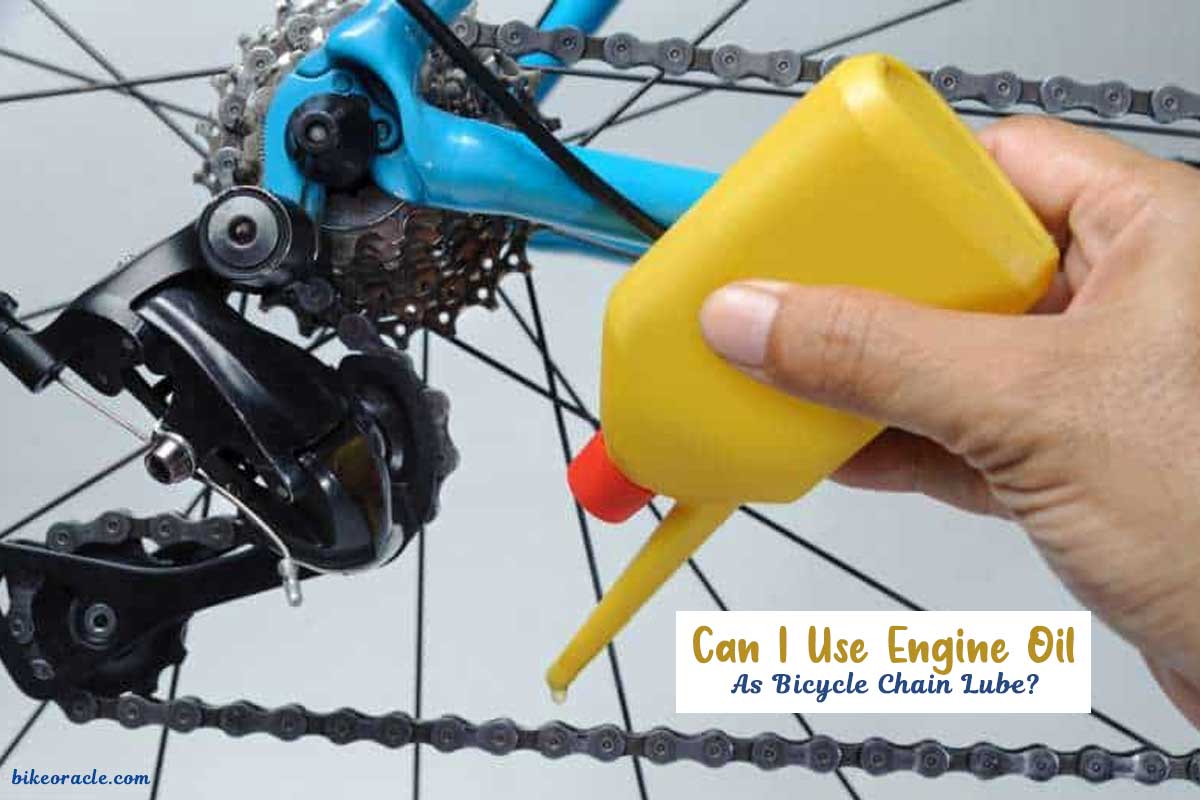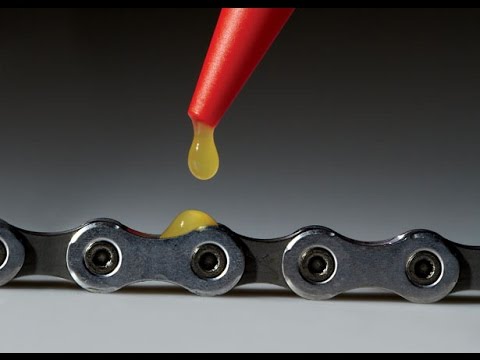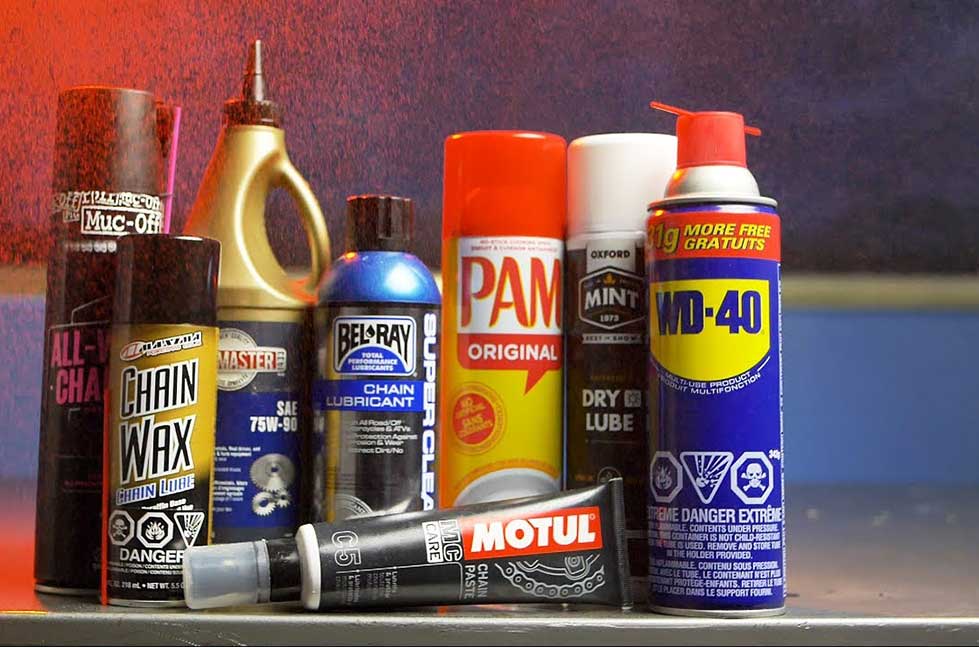Can I Use Engine Oil As Bicycle Chain Lube?

Bicycle chain lubrication can be a tricky topic to get right. Many cyclists have enjoyed using engine oil to do the job, but it’s important to use chain lube designed for bikes. Are you worried about one of the most common questions you can get as a bicycle rider: “can I use engine oil as bicycle chain lube?” here I am to answer it. Also, you can learn about the best bicycle chain lube. So, don’t hesitate to keep on reading this informative article.
Do engine oils work as bicycle chain lube?
Engine oils are designed to lubricate industrial machinery and other engines, which is often unsuitable for bicycle chains. To make those oils work on your bike, you can apply them with a toothbrush and manually move the chain over the oil. To keep your engine running smoothly, you should use specialized items like WD-40 or liquid metal, but even these can be bad for your drivetrain.
Benefits of using engine oil as bicycle chain lube
A good bicycle chain lube does an excellent job resisting the gathering of dust and dirt. Oil is also a natural lubricant that helps minimize wear and tear on your gears. A bike chain lube is unlike any other lubricant, and it can find in nearly every household. Using engine oil as a bicycle chain lube can improve performance and extend life for both your bike and the engine oil itself.

Engine oil is a natural lubricant. It can reduce friction and the buildup of debris on the bike chain. Some lubricants require frequent wiping down to work properly, but engine oil has proven to work effectively even when left untouched for weeks or even months. Chain lubes can make from a variety of ingredients. However, most items used to make bike chain lube are petroleum byproducts. The most popular is motor oil, which comprises hydrocarbon molecules, like those that make up all oils in nature. Engine oil itself can also use as chain lube, and it serves the same function as dish soap.
Which Type of Motor Bike Chain Lubes Should You Use?
Engine oils come in various types, but most contain several different substances. The most common of them is mineral oil, which many domestic engines use. The two most common types of engine oil are crankcase oil and gearbox oil. The latter type is meant to lubricate the transmission and other shafts, while the former maintains the oils in the engine itself. Most motorcycle oils will contain both types, with a combination of each.
Since there are so many different oil varieties, it’s important to know where they come from and how they’re used before deciding what type to use yourself.
- Mineral Oil
The most common type of engine oil is mineral oil. Mineral oils are made from the rock kerosenes found in sandstone and shale deposits. More than 25% of all car engines use this type of oil. It’s a lot heavier than conventional motor oils, but this makes it perfect for use with critical parts that need robustness and light, so they move efficiently in their bearings.
- Gearbox Oil
Another type of engine oil is a gearbox. These oils are designed to lubricate the gearbox itself and make it more efficient. They’re also used by more than 20% of all cars. Gearbox oil is lighter than mineral oil, which helps make them a great choice for crankshafts, but they are still lacking in the shear strength department.
- Crankcase Oil
The most common type of engine oil that you’d use is crankcase oil. This type can be as light as mineral oils, but they’re often made from petroleum-based material. If you’re managing a bike shop and require heavy-duty crankshafts, you should be using this type of oil. Many bike shops use different types of oils for specific purposes, though.
- Synthetic Oil
The most common type of oil to use on a bike is synthetic oil. Synthetic oils are made from petrochemical sources and can contain numerous additives that help stabilize and improve engine performance. They’re also much more durable and can reduce friction levels between moving parts. Synthetic oils aren’t as popular among motorcycle owners, but they’re beginning to gain more attention as the standards for these liquids become more stringent.
- Dispersant Oil
Dispersant oil is a term used to describe oil that breaks down contaminants into smaller pieces. These oils contain elements that prevent particles from binding together and allowing them to slip out of moving parts. These liquids are great for use in cars, but some bike shops also use them for the same purpose.
- Break-In Oil
Break-in oils are used to help new engines break in properly. These liquids are made from mineral or synthetic oils and low-viscosity fluids that help lubricate moving parts. These oils also have additives to ensure the engine is properly lubricated as it goes through its first few hundred miles of use and break-in.
- Drain Oil
Many motorcycle owners drain the oil out of their bikes before they start using them, but there’s another liquid that you should drain out before putting the bike on the ground for sale. Drain oil is used specifically to clean turbocharger components, and there’s a specific type for each engine you can buy.
Read More: Are Alex Rims Good?
What Happens If We Don’t Use a Chain Lube?
With the increased popularity of chain lube, most people don’t even think about what happens if we stop using it. Chain lube is made of natural oils and it doesn’t lubricate chains well, meaning that the chain is likely to rust.
Since chain oil is organic, it doesn’t last long and doesn’t stay in the chain. For this reason, you need to change your chain oil every 400 to 500 miles. Using a quality oil will keep your chain lubricated and it will also keep your chains safe from rust while giving your bike that new-bike look. If you make sure that you don’t skip changing the oil too often, you avoid replacing your chain after a certain time.
The chain can make various things, but it’s important to know that the cheap ones aren’t that cheap in the long run. These are often made from oils that are sprayed onto the chain. Oils used for this purpose often cause your chain to rust, especially if you don’t use semi-synthetic or synthetic oil.
The worst part about this is that you don’t even realize it’s happening because the rust appears when you change your oil. If you check your bike regularly, this won’t happen to you. The best way to deal with a rusty chain is by washing it off and lubricating it with good-quality oil. If you want to save money, go with the cheaper lubes and make sure that you do it every few rides.
Which Things to Consider While Buying a Chain Lube?
Chain lubes are professional-grade lubricants used to help maintain your chain. They should not be confused with bike oils meant to use on moving parts of a bike, such as gears and bearings. Chain lubes should always use on-chain. The purpose of chain lubes is to ensure that the parts of your bike are protected and running smoothly. They also work to extend the lifetime of your bike by keeping it in good shape and working properly.

There are several types of chain lubes out there. Some have even been modified so that they can be sprayed on the chain and then run over with a bike. Others have to be applied directly to the chain and poured into a spray bottle to apply. There are also oils meant for certain parts of your bike. What type you will use will depend upon what is most beneficial for your bike’s needs. Here are some things to consider when buying chain lubes:
- Safety Features
There are many safety features on lubes, from flammability to toxicity and beyond, depending on what type of product you get and what brand is selling it. Choose the one that best suits your needs and you will be buying a product that will safeguard your bike for years to come.
- Container
If you plan to use the lube for a long time and have simple applications, make sure that you buy one with a good container. The most common container is an aerosol can because of its easy applicability. Some other styles of containers include bottles and jars, where you will have to scoop out the lubricant with your hand. Choose one that best suits your needs to ensure that you get the most use from it.
- Environment
Did you know that chain lubes aren’t harmful to the environment? Most of them have little or no oil and can be easily disposed of after use. Some oils are biodegradable, while others are made from recycled materials.
- Price
The price of any product will be very important in your decision about which item to buy. You will want something that is priced fairly and within your budget. However, it would help if you also looked at the item’s quality when it comes to price. If you find something extremely cheap, that doesn’t necessarily mean that it is a great deal. You could use so much more of the product just to get the same coverage or results as another brand, thereby negating its low price.
- Use
Use the chain lubes correctly to ensure that you benefit from them. When you apply the lube, you cover every part of your chain as evenly as possible to ensure that it is protected and kept lubricated properly. You should also make sure that you store it in a safe place so it doesn’t have contact with any moisture or other substances that could harm it.
- Other Conditions
The type of chain lube you choose will also depend upon what condition your bike is in at any given time. Will you be using it on a race day or just each time you take your bike out for the day? What type of elements is around the area that could cause it to deteriorate quickly? Make sure you choose the right product and keep it protected so that it doesn’t contribute to a breakdown or unwanted damage when not in use.
Read More: Are Mountain Bike Forks Universal?
What is the best chain lube for bicycles?
Chain lube has long been one of the most important aspects of bicycle maintenance. The right lube will help keep your chains moving smoothly, preventing them from becoming clogged and making your ride more enjoyable. But what is the best chain lube for bicycles? There are many different types of chains available to choose from when trying to keep your bicycle chain moving smoothly. Here are the top 3 best chain lubes for bicycles, so you can make the right choice for your specific needs.
Finish Line Cleaner and bicycle chain lubricant
Are you looking for a quick way to clean your bike, keep it running smoothly and maintain the durability of your bike chain? Finish Line 1-Step bicycle chain lubricant is the perfect solution. This all-in-one cleaner and lubricant works quickly to clean dirt, grime, and residue from your bike frame while also protecting your chain’s life span by preventing corrosion. The formula is also designed to strip away oxidation and rust while lubricating your chain to protect it against wear and tear. The biodegradable formula will not harm the environment.
In addition to its cleaning and lubricating properties, Finish Line bicycle chain lubricant will also keep your bike in excellent running condition. It works to reduce friction between your drive train, shifters, and derailleurs by removing the sticky residue that builds up on these moving parts. The lubricant is designed to be extremely slippery for smooth shifting, so you can ride with peace of mind knowing that your bike will run smoothly without any dangerous grinding or slipping.
Muc Off Biodegradable Bike Wet Chain Lube
Bike chain lube is essential to running your bike smoothly and efficiently. Your bike needs to stay in good condition to enjoy a smooth ride. However, most bike chain lubes are hazardous to the environment and can cause serious damage if they get into water sources or on land surfaces, destroying the natural biome of the area. Muc Off Wet Chain Lube is a great alternative to other bike chain lubes because it’s biodegradable, contains no petroleum products, and is non-abrasive thanks to its non-stick properties from its waterproofing formula.
With a great reputation, Muc Off has developed a bike chain lube that fits all weather, even wet conditions. Muc Off Wet Chain Lube is formulated to withstand the elements, including the snow and ice that can build up on your bike chain. It contains no petroleum products and is non-abrasive, so you don’t have to worry as much about wear and tear on your bike’s parts or components. It also keeps away rust from developing on any of your mechanical parts. The bike chain lube is safe to use on all types, including hybrid and BMX bikes.
WD-40 Specialist Bike Chain Lube
WD-40 Specialist Bike Chain Lube is a versatile product designed to protect bare metal while reducing wear and friction. It is an ideal lube for chains, cables, freewheels and derailleurs. The formula contains PTFE for low-friction protection and a lubricant additive to protect from rust.
WD-40 Bike Chain Lube has specially formulated for use in wet, muddy conditions, a common challenge faced by cyclists. The liquid lube leaves an extremely thin protective film on the surface of the chain, resulting in reduced wear and friction.
It also offers excellent protection against rust formation while maximizing drivetrain life expectancy across all types of terrain. The most common method for applying the lube is to spray it on in a well-ventilated area and then wipe it clean with a lint-free cloth. If using this method, it is best to apply lube immediately before riding so that the lube does not dry out before you hit the road. It also prolongs drivetrain life expectancy and accommodates all weather conditions. The volume applied will vary depending on factors ranging from riding conditions to rider preference. For best results, apply to both sides of the chain when complete.
FAQS About Using Engine Oil as Bicycle Chain Lube
Can I use the same type of motorcycle oil as I use in my bike’s engine?
Most people say it is fine to use motorcycle oil as bike oil. Some additives are added to make oils for bikes, but not every bike requires a specific type of lube. The bottom line is that you can use the same kind of oil and mix it with another form of lubricant if you prefer, which should work just fine.
What’s the best way to go about cleaning a bike’s chain?
The best way to clean a bike chain is to run it through the washer of your sink, and then you can use soap and water. Use a sponge to get in the nooks and crannies. Another option is to mix a few tablespoons of dishwashing liquid with 1 liter of water. Put your chain in a bucket, add the detergent mixture, apply it with a brush, and then use rags or paper towels for cleaning.
Do I read to remove my drivetrain from my bike when I want to clean it?
It’s always good to clean bike chains and other drivetrain parts, in the same manner, you remove them from your bike. For instance, you can use wrenches to remove the wheel and wheel axle, but you must not use pliers or any other tool that will scratch your bike. Once you’ve got it all taken apart, clean it thoroughly with soap and water, then dry it with paper towels. It should not take more than an hour to complete the process.
Can I use other types of lubricants?
Yes, but bear in mind that you will likely get a different type of bike than you would use the same engine oil. You will also need to check and see if the lubricant is safe for your drivetrain. For example, many car oils are not safe for bicycles.
Do I need to use an oil filter?
Yes, you will need to use an oil filter to use the same engine oil. It is relatively inexpensive and can be purchased from your local bike shop or hardware store.
Verdict
Using engine oil as a bicycle chain lube may work for some people, but it is not recommended because it can damage the chains and gears. Engine oil is also very viscous and has a low flash point, so it can easily ignite or cause fires. It’s always best to use bicycle-specific lubricants specifically designed for chains, gears and all types of bicycle components.
So, as you can see from this blog post, engine oil is not an advisable alternative for bicycle chain lube. It’s important to use the right type of lubricant that will suit the job at hand and one final thing to consider before deciding on a lubricant is that some oils are intended for certain weather conditions only. If you decide to use engine oil as a bicycle chain lube, test it on a small part of the chain first to make sure it does not cause damage.





![What Oil Can You Use On a Bike Chain – [Answered]](https://bikeoracle.com/wp-content/uploads/2023/08/What-Oil-Can-You-Use-On-a-Bike-Chain-768x512.png)